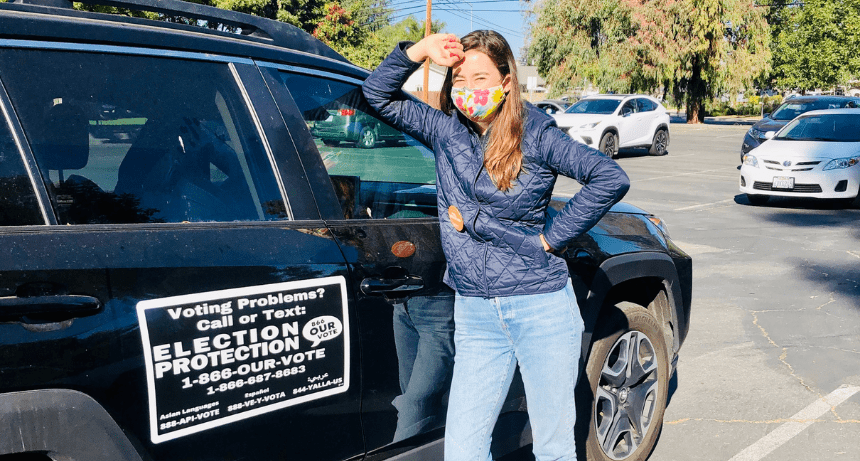
In addition to the Clinical Program’s many policy reform projects, Berkeley Law’s 38 current Student-Initiated Legal Services Projects — led by 2Ls and 3Ls and available to all students — also pursue change in myriad ways. Here is just one example:
The hard-fought 2020 election pushed many Berkeley Law students to advocate for campaigns, organizations, and causes. For those in the student-led Political and Election Empowerment Project (PEEP), a new partner is stretching their work into the critical 2021 redistricting year.
Members of PEEP reached out to the San Francisco-based Asian Americans Advancing Justice – Asian Law Caucus because they wanted to work with a local organization. They spent the fall scrutinizing data from around the country and identifying areas where districts might be drawn including a majority of Asian Americans, or a combination of minority groups.
PEEP students pored over U.S. Census data and other sources, then drafted memos to help the Asian Law Caucus protect voters as redistricting moves forward later this year.
“It was incredibly exciting to play a key role in the electoral process,” says Aaron Esparza ’22. “Since redistricting only occurs once every 10 years, this is a rare moment to take part in. Hopefully our research sheds light so that politicians ensure that all voters are given an equal voice.”
Redistricting challenges vary nationwide. In California, fires, a common misconception that the census excludes immigrants, and the COVID-19 pandemic created obstacles to a full count of residents.
This spring, PEEP is switching gears and focusing on language access for voters, researching relevant laws outside California and drafting model legislation.
Many group members also volunteered during election season, doing poll monitoring and other direct work, which brought them even closer to the difficulties voters can face.
Sara Clark ’23 came to Berkeley Law determined to use her legal training to promote equal and easy voting access. As a 1L working with PEEP, she gained demographic research experience and spent her fall Saturdays manning an election protection hotline, helping people navigate different attempts at voter suppression and various pandemic-related complications.
On Election Day, she was a poll monitor in Contra Costa County and witnessed first-hand the strengths and weaknesses of a community polling place.
“This combination of opportunities only strengthened my motivation to be a lifelong advocate for voting rights,” Clark says. “I aim to combat restrictive and expand beneficial electoral policies, using the strength of the law to elevate voices that would not otherwise be heard at the ballot box.”
— Gwyneth K. Shaw